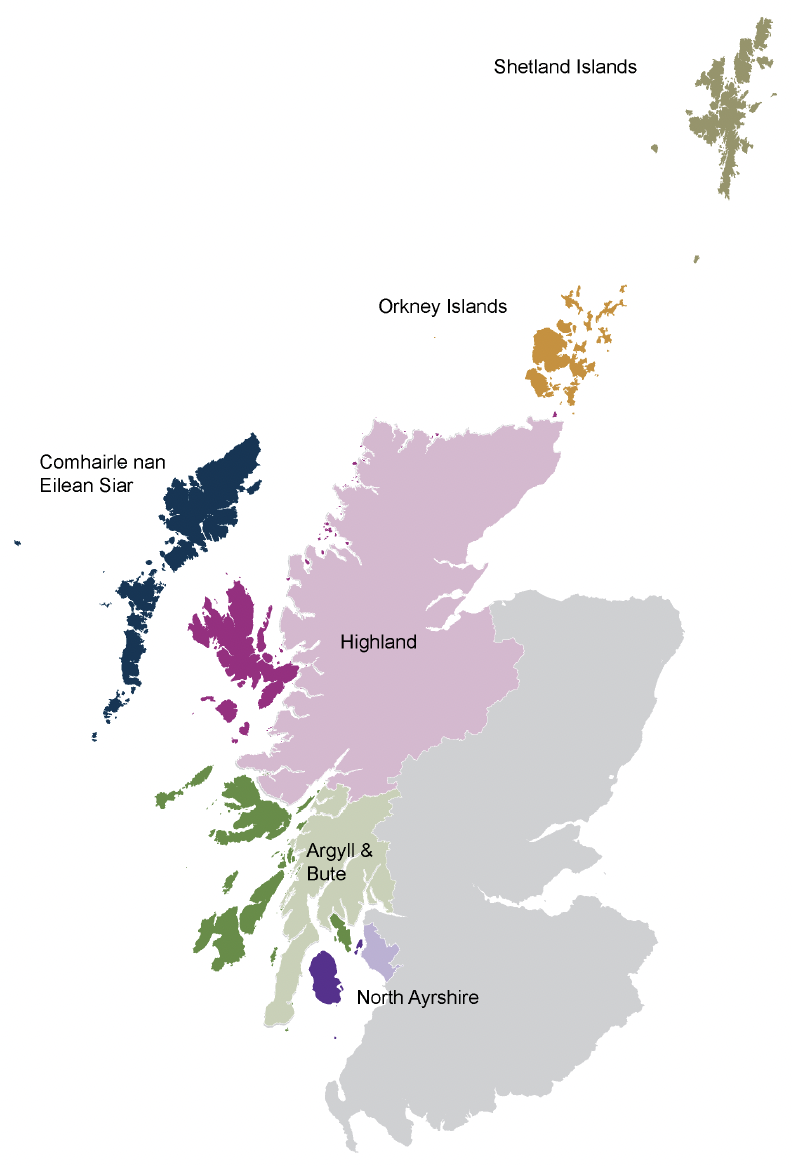Disclosure (Scotland) Act 2020 - accredited body fees and discounting proposals: draft island communities impact assessment
Draft island communities impact assessment in relation to Disclosure Scotland’s consultation on accredited body fees and proposals for discounting under the PVG scheme.
2. Step One – develop a clear understanding of your objectives
2.1 What are the objectives of the policy, strategy or service?
The primary objective is to bring Disclosure Scotland back to a cost-neutral position, as required by the Scottish Public Finance Manual by changing statutory fees. Charging for services helps to avoid unnecessary public expenditure and eliminate hidden subsidies. Charging also provides an incentive to use goods and services economically, efficiently and effectively. Disclosure Scotland carries out statutory services for which fees can be charged. The standard approach to setting charges for public services is full cost recovery. It normally means recovering 3.5% return on capital.
The policies in the consultation support this overall aim by reviewing the operation of the fee waiver for volunteers in qualifying voluntary organisations (QVOs) and proposing options for fee discounts for certain groups when applying for paid roles.
2.2 Do you need to consult?
Yes. Formal consultation will be undertaken before regulations are laid.
2.3 How are islands identified for the purpose of the policy, strategy or service?
Regard was had to the definition of island set out in section 1 of the Islands (Scotland) Act 2018. “Island” means a naturally formed area of land which is (a) surrounded on all sides by the sea (ignoring artificial structures such as bridges), and (b) above water at high tide.
“Inhabited island” means an island permanently inhabited by at least one individual. This impact assessment does not impact uninhabited islands, so “island” will be used to refer to inhabited islands.
Scotland has three island authorities - Orkney, Shetland and Comhairle nan Eilean Siar. In addition, the Highland, Argyll and Bute and North Ayrshire local authorities cover island regions as well as mainland regions.

2.4 What are the intended impacts/outcomes and how do these potentially differ in the islands?
The intended outcome is to adjust fees associated with disclosure products to cover the cost of delivering disclosure services. Fees are charged on a product/service basis and these are the same for those accessing those services in islands as in mainland Scotland.
A secondary outcome is to set fees at an affordable level to support people who may otherwise be locked out of certain types of employment due to lack of means.
The policy contributes to the following National Outcomes:
- Children and Young People: We grow up loved, safe and respected so that they realise their full potential.
- Communities: We live in communities that are inclusive, empowered, resilient and safe.
- Poverty: We tackle poverty by sharing opportunities, wealth and power more equally.
2.5 Is the policy, strategy or service new?
Charging fees for disclosure products and services is not new.
Fees for disclosure products have been set at a flat fee per product, except in limited circumstances to which a fee waiver has been attached (such as the qualifying voluntary organisation fee waiver, eligible COVID work applications and Homes for Ukraine scheme applications).
Annual fees for registering as a registered person (equivalent to accredited bodies under the Disclosure Act) have remained unchanged since 2011. A small number of current responsible bodies receiving basic disclosures will become newly eligible as accredited bodies.
Contact
There is a problem
Thanks for your feedback